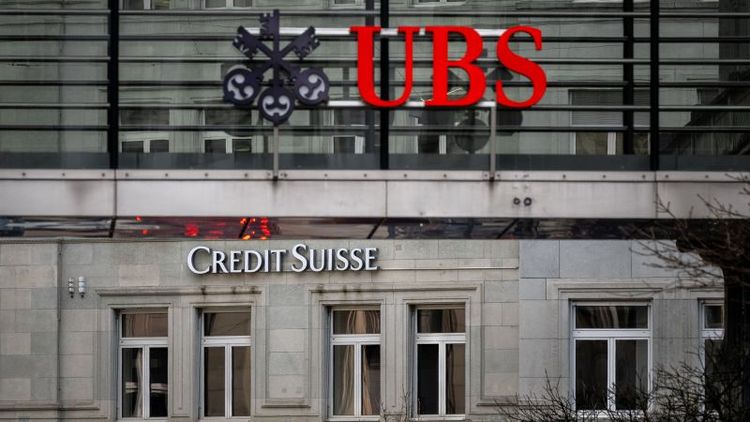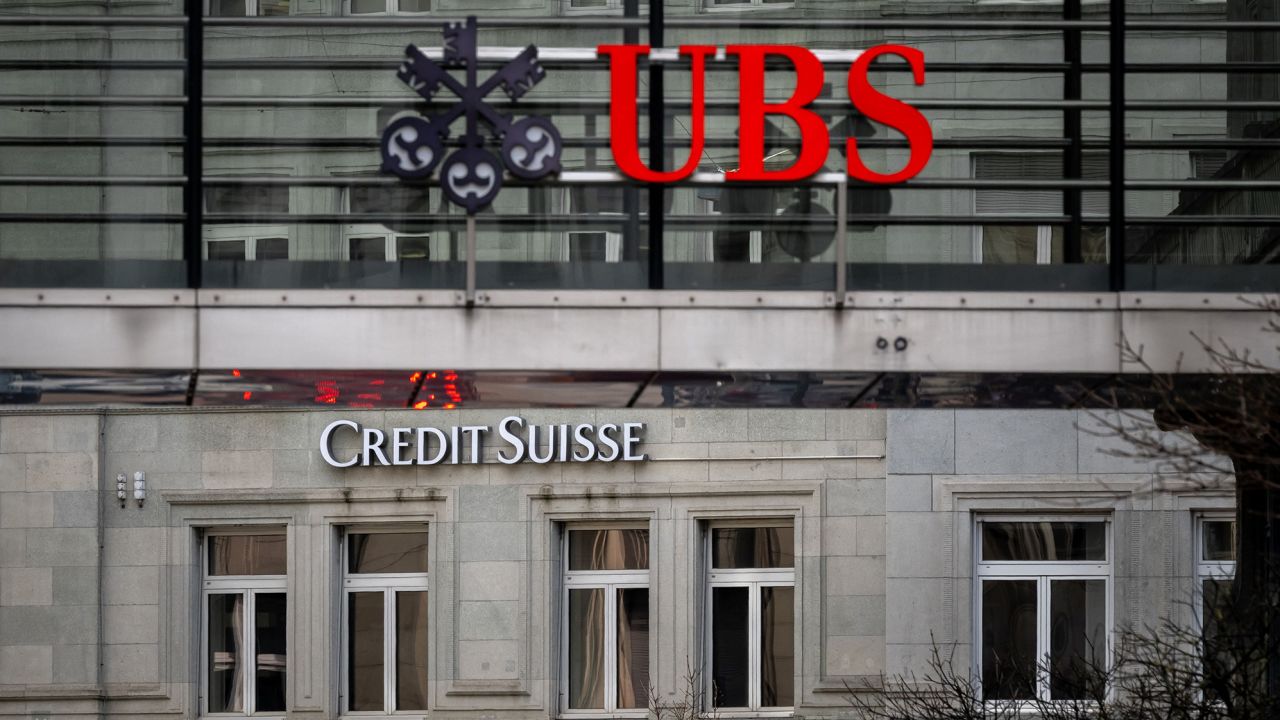UBS will cut 3,000 jobs in Switzerland as it absorbs Credit Suisse

UBS anticipates reducing its workforce by approximately 3,000 positions in Switzerland in order to achieve a cost reduction of $10 billion. This move is part of a comprehensive restructuring plan, which was initiated after UBS' emergency bailout of Credit Suisse earlier this year.

The reduction in workforce represents approximately 8% of the employees working for the Swiss branch of the international banking corporation. This move might lead to fresh disagreement within the nation, considering that the agreement has already faced strong disapproval from the public and certain policymakers.
In a statement released on Thursday, the Swiss banking union expressed the Swiss Bank Employees Association's demand for fair and equal treatment of the 37,000 employees working in the two institutions based in Switzerland during the integration process.
During a conversation with financial analysts, UBS Chief Executive Officer Sergio Ermotti expressed his sympathy by acknowledging the distress caused by every job loss. Regrettably, due to the circumstances at hand, reductions in staff were deemed inevitable.
Ermotti mentioned that the reduction in workforce will be implemented gradually within a span of a few years. Additionally, he emphasized that the bank will extend financial assistance, outplacement services, and opportunities for retraining to the affected employees.
The financial institution, which employs around 122,000 people worldwide, did not provide any additional information regarding potential job cuts beyond Switzerland in its financial report. This marks the inaugural statement since the bank completed its acquisition of a competing organization.
According to UBS CFO Todd Tuckner, nearly 8,000 individuals employed by Credit Suisse had already departed of their own accord during the initial six months of this year. Approximately half of these departures occurred in the United States and Asia-Pacific region, while Switzerland accounted for 10% of the overall attrition. Tuckner conveyed this information to journalists.
Ermotti expressed that the banking institution anticipated a greater number of employees to voluntarily leave or retire. However, in order to accomplish their savings objectives, it is necessary to reduce positions outside of Switzerland. Additionally, UBS (UBS) is aiming to decrease their dependence on external contractors.
Victoria Scholar, the investment head at Interactive Investor, an internet-based platform, discussed the daunting task faced by the bank as they strive to maintain crucial staff members alongside implementing significant job reductions.
UBS also affirmed intentions to keep Credit Suisse's banking activities in Switzerland and integrate them completely into the newly combined entity, instead of choosing to separate or go public, even though this decision would have led to a reduction of 400 job cuts.
In a statement, Ermotti expressed that our examination unmistakably demonstrates that a complete combination is the ideal result for UBS, our shareholders, and the economy of Switzerland. He further noted that this represents one of the most significant and intricate bank mergers ever.
UBS has projected that it will accrue more than $10 billion in cost reductions through the consolidation, exceeding initial estimates by $1 billion and achieving this target a year ahead of schedule, as stated during the acquisition announcement made in March. Following this uplifting revelation, the bank's stock experienced a surge of up to 7% on Thursday, and has displayed a remarkable growth of 35% throughout this year.
UBS recorded a net income of $29 billion in the second quarter, which was attributed to the exceptional gains from acquiring Credit Suisse at a significantly reduced price. Additionally, the company experienced substantial growth in its global wealth management sector, with a remarkable $16 billion of net new funds being invested. This figure is the highest recorded for a second quarter in over ten years.
On March 19th, UBS made a deal to purchase Credit Suisse at a significantly lowered cost of 3 billion Swiss francs ($3.4 billion). This rescue operation, initiated by Swiss authorities, was aimed at preventing a potential collapse in the banking industry.
Credit Suisse faced a devastating blow as the trust in the struggling bank diminished and depositors swiftly withdrew their funds. The institution had been haunted by numerous scandals and breaches in regulatory compliance during recent times, eradicating its earnings and leading to the departure of its clientele.
However, the final blow arrived when it admitted to having "significant deficiencies" in its financial record-keeping. This revelation, coupled with the alarming collapses of American regional banks Silicon Valley Bank and Signature Bank, sparked widespread anxiety regarding the stability of vulnerable institutions.
The fusion of the two Swiss banks has sparked disagreement as it leaves Switzerland vulnerable to a solitary colossal financial organization, boasting a market dominance of approximately 30% and assets almost twice the magnitude of the country's yearly economic production.
Initially, it was the responsibility of taxpayers to bear the possible losses from the agreement. However, UBS recently announced that it will no longer require a guarantee of 9 billion francs ($10.3 billion) from the Swiss government to cover any future losses that may arise from Credit Suisse assets.
Additionally, it stated that it no more needed financial assistance worth 100 billion francs ($114.2 billion), which was guaranteed by the government. Moreover, Credit Suisse has fully settled its previous debt of 50 billion francs ($57.1 billion) owed to Switzerland's central bank.
The Swiss government stated at that moment that citizens will not have to face any risks associated with these guarantees anymore.
UBS and Credit Suisse will maintain their individual labels until at least the conclusion of 2024, as stated by Ermotti. "For the time being, clients will not experience any alterations," he remarked, also mentioning that the possibility of occasionally employing the Credit Suisse brand post-merger was not off the table.























































